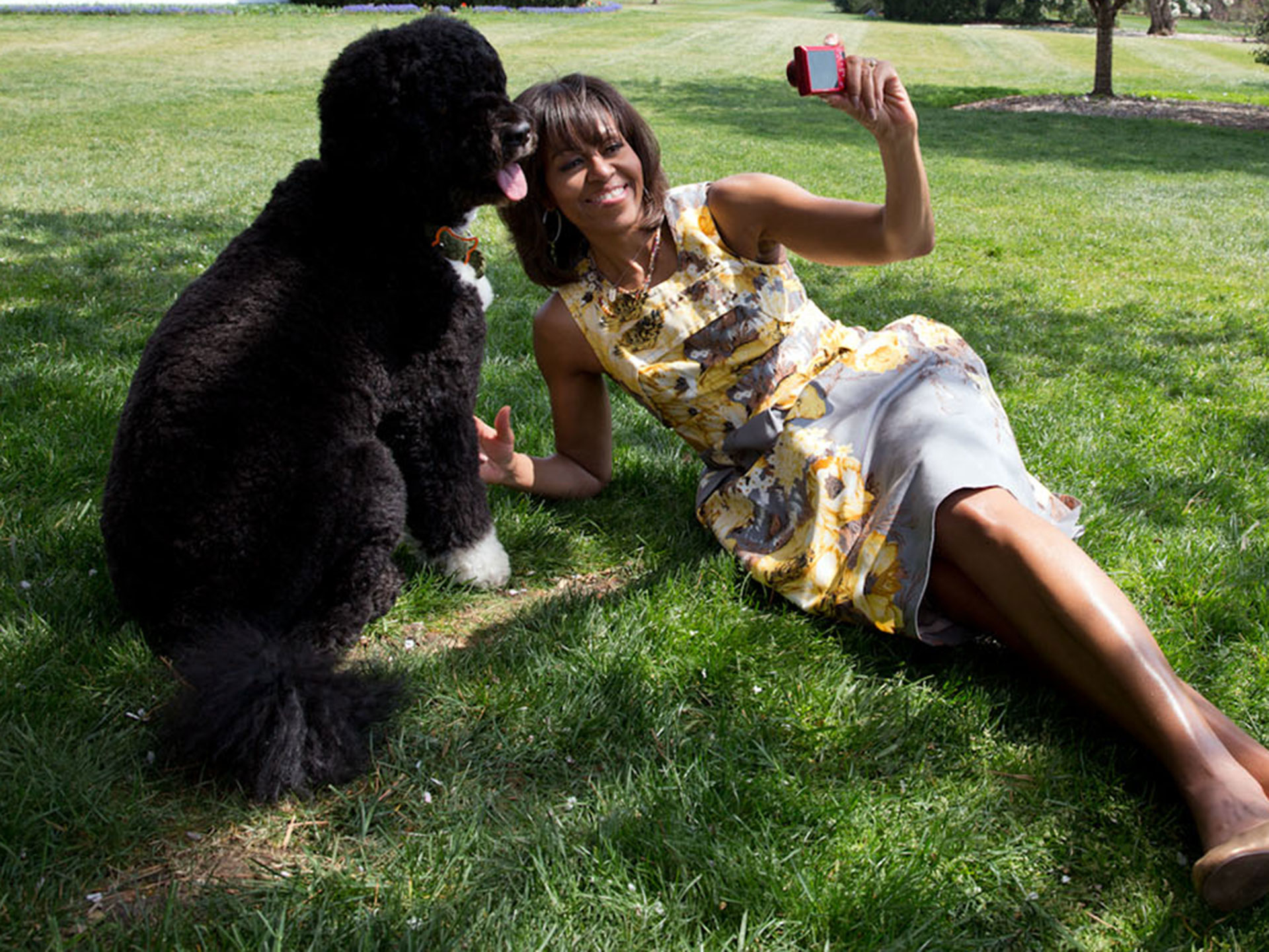Pets are precious, and some pet-parents would argue that they are better than children (this office remains divided). Dog versus cat is an age old argument, and even though science has got some thoughts on that (spoiler: cat owners are smarter than dog owners, confirms study) all proud pet owners can agree that they talk to their pets as if they were humans.
If someone has even given you a second glance when you whip out your ‘just for pet’ voice, fear not!
This is actually a sign of intelligence, and science can confirm why.
Naming your pet and applying human characteristics to it is called anthropomorphising, and it is human nature.

Michelle and Bo Obama snap a selfie
“Historically, anthropomorphising has been treated as a sign of childishness or stupidity, but it’s actually a natural byproduct of the tendency that makes humans uniquely smart on this planet,” says Nicholas Epley, a professor of behavioral science at the University of Chicago to Quartz.
“No other species that has this tendency.”
As adults, we anthropomorphise pets, inanimate objects and even events without a second thought.
Does your car have a name? Is your computer stubborn? Does your phone hate you? Is your cat rude?
These are all examples of anthropomorphising, and it makes you more intelligent because it means your brain is working to understand the object better to explain unpredictable behavior.
It creates a connection (that humans strive for) so that you believe the object (or pet) “has vested interest in keeping you safe—even though it truly has no interests at all,” explains Macquarie University linguistics professor Ingrid Piller to Quartz.
We also tend to anthropomorphise things we like and love, not ones we dislike or hate.
So next time someone rolls their eyes at you after you remark that your TV is judging you, you can brush them off because you know that you are smarter.




